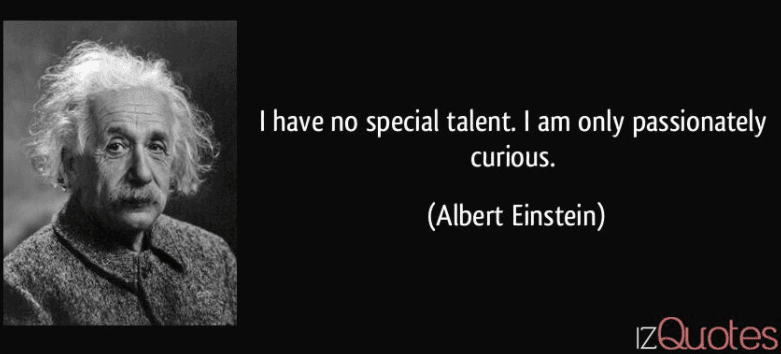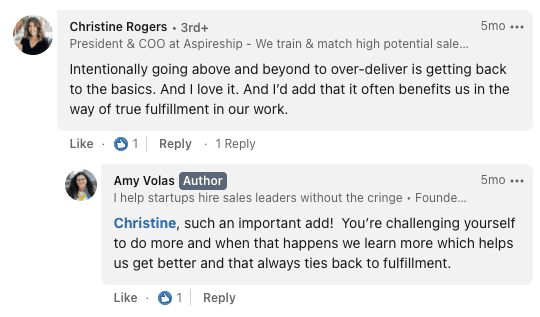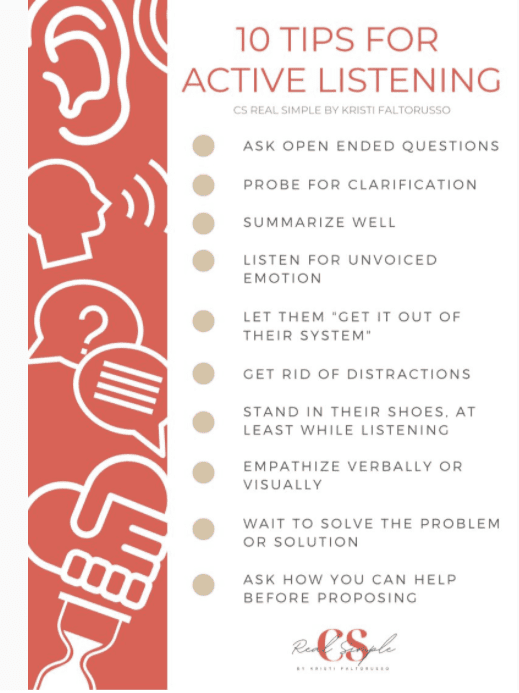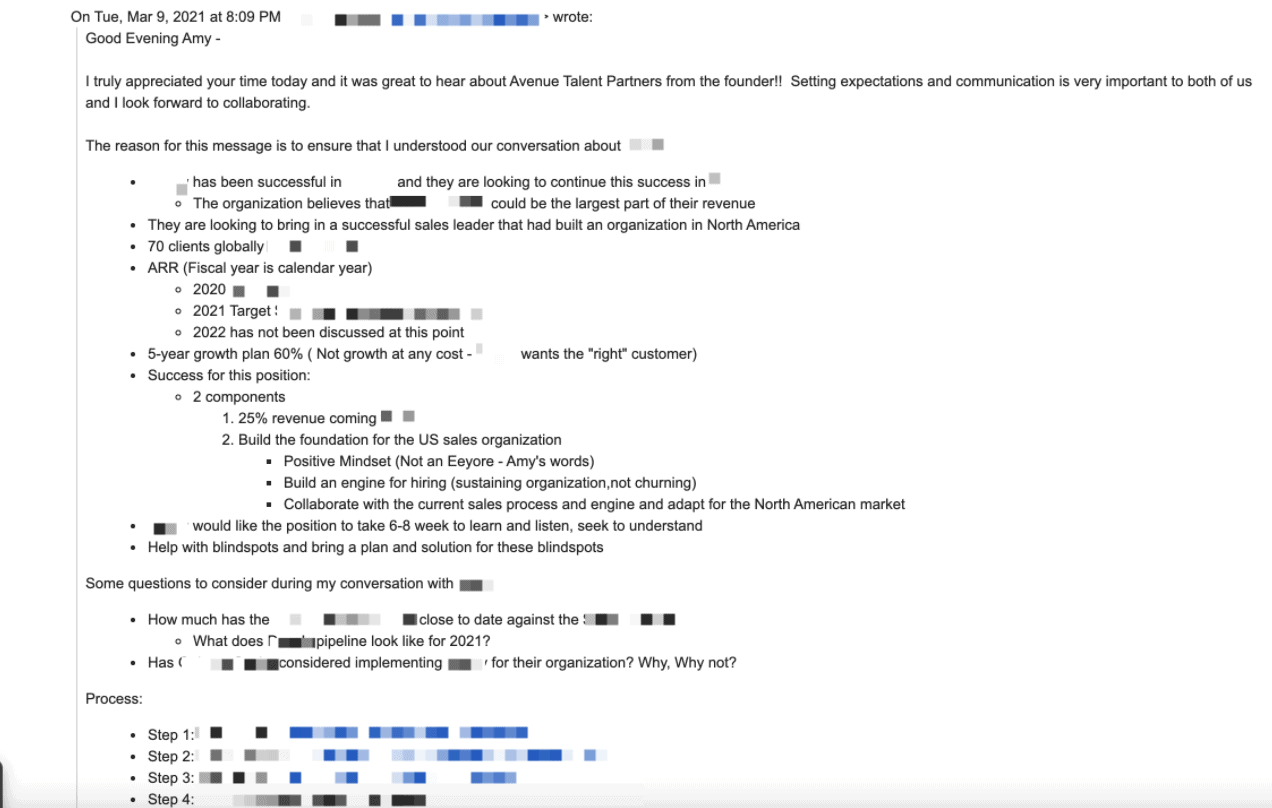
The Power of Curiosity in Sales
Curiosity is one of the personality traits that compels humans to reach their full potential while connecting on a deeper level.
After all, would we have ever walked on the moon if we weren’t curious about it first?
Aside from driving our innovations, curiosity is one of the leading indicators for success in startup sales as a leader, seller, or founder. That’s why it’s one of the most sought-after traits when startups are hiring.
But what does it really look like in practice?
You can objectively know that you want to employ more curious people, but without an understanding of how curiosity translates to sales success, you’ll be forced to trust your gut when you hire – which should be avoided whenever possible.
Curious people are the ones who’ll push the boundaries of what’s possible and are always looking for ways to improve – personally and professionally.
The dictionary definition says curiosity is ‘a desire to know’ or ‘an interest leading to inquiry’.
Ultimately, people want to be seen, heard, and understood. And when used in practice, it pushes the boundaries of possibility. Without leaning into curiosity, you’re stuck assuming and run the risk of stagnating as a company with a lukewarm offering that doesn’t bring anything exciting to the table for potential buyers.
The power of genuine curiosity keeps your company on the edge of innovation and displays a willingness for constant improvement and growth.
Understanding Curiosity

Contrary to popular belief, curiosity is actually an emotion.
Let’s get nerdy for a moment… it originates from the amygdala – where other dominant emotions, motivation, and social rewards/punishments arise and come to impact our decision-making processes.
Empathy, creativity, innovation, and the ability to learn quickly all spring from the root of curiosity (link: https://review.firstround.com/hire-a-top-performer-every-time-with-these-interview-questions )
We see it so clearly in kids. Their curiosity is flourishing as they learn to engage with the world around them. Everything is a wonder that they dig into, peel apart, and explore.
As we get older, we’re taught to always seek the “best” solution for everything, to search for shortcuts, not bother going outside the lines, etc.
And what does that do? It stops curiosity in its tracks and makes us more obedient, conformative, unwilling to explore all the possibilities.
Curiosity and that innate drive to dig deeper are essential to building wisdom, navigating the best ways to work together, and to help our buyers.
No matter how you describe it (learning, discovering, exploring, etc.), all curiosity essentially comes down to a desire to gain knowledge—especially when there’s a problem to be solved or an opportunity to get better.
It’s also a powerful motivator. Curious people are compelled to dig for answers and go much, much deeper than surface-level analysis. And let’s be honest, deeper below the surface is where the magic happens.
Why Curiosity leads to sales success
Curiosity is a trait that:
-
Encourages meaningful conversation
-
Removes assumption
-
Makes you a stronger leader
-
Opens the door to a world of possibilities
-
Promotes increased collaboration
It’s also a cyclical trait. The more you dig in, examine, and explore, the more it fuels your curiosity.
So it’s easy to see how curiosity helps people connect on a deeper level. It’s no wonder Dale Carnegie harped on this in his celebrated book ‘How to Win Friends and Influence People’:

Without curiosity, it’s impossible to deeply connect with other people and tune into their deepest needs, wants, and desires. And yes, this applies to your startup and sales career!
When people are curious, they embody the ‘seek to understand’ mentality I love to emphasize and bring that mentality to every interaction they have with a client, buyer, or colleague.
This is the precursor to understanding why people want what they want and why it’s important to them. And when you understand the why that drives people, you’re in a much better sales position to deliver a solution that ticks all the boxes.
What curiosity really boils down to is a willingness and drive to always take things a step further.
If you ask someone to do something, they could simply do it. Or they could deliver a little extra on top. Or they could dive deep and go above and beyond to provide much more value than you expected?
Who do you think is the most curious?
The best people I’ve come across in sales are the ones who are empathetic and take the time to listen and understand their clients’ needs on a deep level.

It’s important for me to reiterate that sales isn’t a solo venture. Sales success depends on effectively working with and for other people. Fostering great relationships is absolutely key – especially if we’re talking enterprise sales.
So if you want to increase sales at your established company or startup, curiosity should be one of those traits you keep a close eye out for in your next hiring round.
Look at Mark Cuban, the Shark Tank star and powerhouse entrepreneur. He’s a self-professed voracious reader. He pays attention. He wants to know more. And in conversation, because he’s immersed himself in what he’s talking about, what he’s interested in, and the marketplaces that he’s involved in, he becomes incredibly valuable. His words are captivating and have substance because he can connect the dots.
That knowledge allows him to build meaningful relationships that don’t feel “salesy” at all. It’s the exact opposite of relying on sales scripts and talk tracks.
So, let’s take a page out of Mark’s playbook to do our homework upfront because we’re curious to know how and why we can actually help solve problems, reach goals, or get better… remember these 3 reasons why buyers make purchasing decisions.
Curiosity isn’t a static trait that you’re born with. It’s something that you can cultivate, all you have to do is work at it like you would any muscle you want to strengthen.
Kristi Faltorusso does a great job of breaking down ways to hone your active listening skills:

Active listening is table stakes in sales.
A little reminder goes a long way.
How to Spot Curiosity in Interviews
Curiosity is more of a show than a tell trait. So you’ll have to be a bit creative with how you assess for curiosity and what to look out for.
Generally, you want to be aware of anything that represents someone going ‘above and beyond’ to illustrate their desire to understand. The screenshot below is a perfect example. This is an email I received from a candidate shortly after our interview:

Talk about above and beyond!
He totally blew me and the startup he was interviewing away. His attention to detail and genuine desire to make sure he understood the task at hand is what reinforced the decision to hire him for their VP of Sales role.
That said, curiosity won’t always be so obvious, so this is where you have to be creative in your interview process.
One thing to do is ask specific questions in the interview that’ll open the conversation to see how curiosity comes out (or not). One of my favorite questions is to pause and ask, what do you think about this?
Their response will give you a window into how much they’re listening, how they’re thinking about the topic, and questions to dig deeper.
Another tip is to include an agenda of what you’d like to cover together and something for them to consider/prepare to discuss ahead of time.
Curious people will dive deep and find a way to extract more value out of the task, illustrate they heard you and come prepared, and a quest to learn more because they care.
HBR sums it up well:
“While many of us have thought of being a good listener being like a sponge that accurately absorbs what the other person is saying, instead, what these findings show is that good listeners are like trampolines. They are someone you can bounce ideas off of — and rather than absorbing your ideas and energy, they amplify, energize, and clarify your thinking. They make you feel better not merely passively absorbing, but by actively supporting. This lets you gain energy and height, just like someone jumping on a trampoline.”
You can’t teach people to care, look for this!
Also, don’t forget that curious people LOVE to ask questions about the task at hand! If someone shows up to an interview with you and doesn’t have any questions or they ask you something they could ask any other company… well, it’s pretty clear the first red flag has been raised.
Wrapping Up
Curiosity may have killed the cat, but it’ll do the opposite for your startup, sales team, or sales career.
Taking purposeful steps to cultivate curiosity will lead to better relationships with your buyers, and better results down the line.
When you take the time to dive deep, are genuinely interested, and really understand and continue to understand your buyers’ needs, that’s when sustainable success comes into play.
Stay curious out there!
